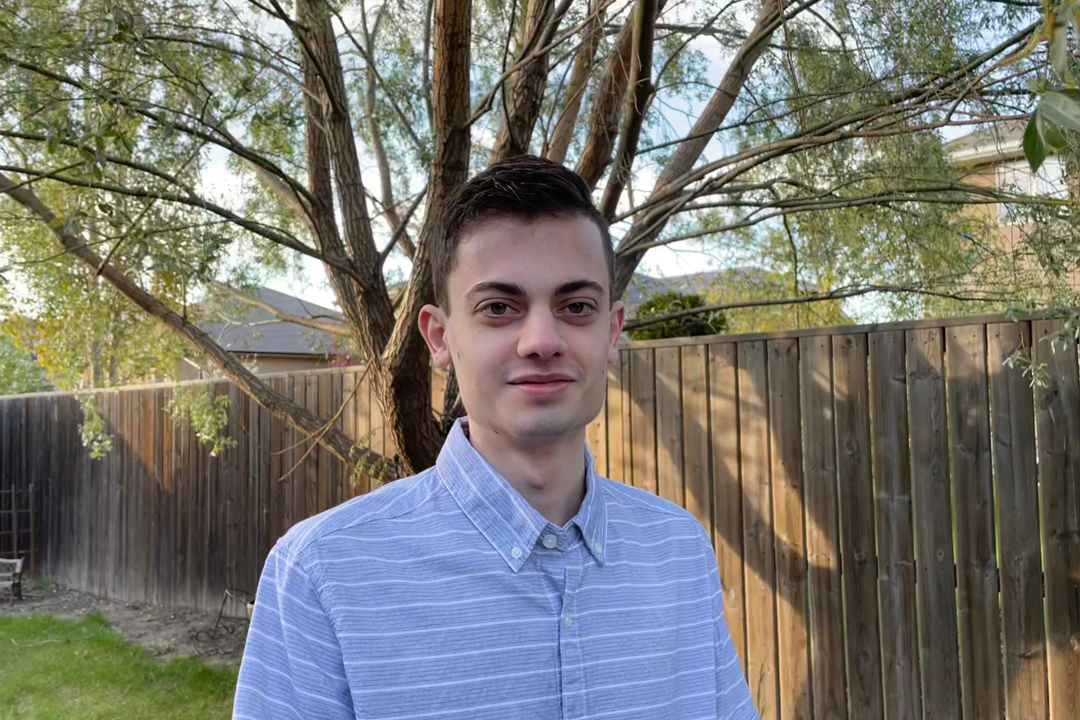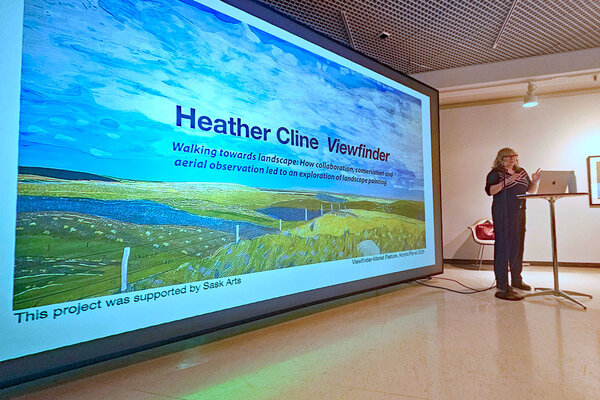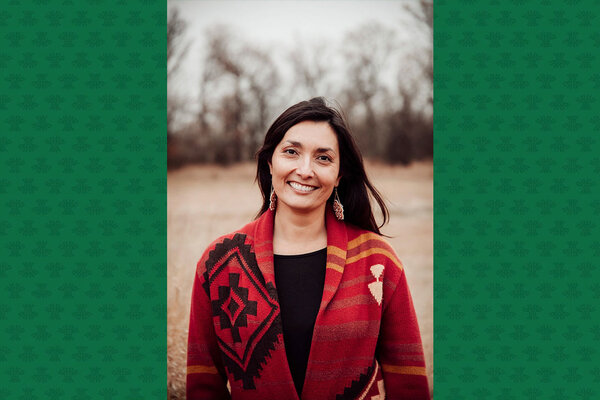
Longtime interest in math and technology leads to USask degree
Award-winning student Noah Friesen will receive a Bachelor of Science double honours degree in mathematics and computer science at Spring Convocation
By Shannon Boklaschuk
June 6 will mark a significant day in Noah Friesen’s academic journey at the University of Saskatchewan (USask).
On that day, Friesen will be honoured at an awards ceremony as one of the College of Arts and Science’s top graduates. He will receive the Earl of Bessborough Prize in Science, awarded annually to the most distinguished graduate in science, as well the awards for Most Outstanding Graduate in Computer Science and Most Outstanding Graduate in Mathematics.
“It feels rewarding to have my four years of hard work come to fruition,” said Friesen, who will receive a Bachelor of Science double honours degree in mathematics and computer science at USask’s Spring Convocation, which runs from June 6 – 10.
“I am proud of my accomplishments and thankful to my professors for all that they have done for me,” he said.
Friesen was born and raised in Saskatoon and completed high school at Evan Hardy Collegiate before beginning his studies in the College of Arts and Science. Growing up he knew that he wanted to study at USask; both of his parents attended the university, and USask is known for its high-quality mathematics and computer science programs.
“I have always been interested in technology and have excelled in mathematics throughout my education. I enjoy the abstract thinking and creativity involved in writing mathematical proofs, and I find that it gives a good basis for solving any problem, especially the type that often appear in computer science,” he said.
“In high school, I completed Advanced Placement calculus and computer science classes, earning 12 credit units at USask—six in math and six in computer science—giving me a head start on my degree. Saskatoon’s technology industry seems very promising, and I think that the growth it’s seeing could lead to some great employment opportunities in the future. For these reasons, the double honours degree in mathematics and computer science seemed like the perfect option for me.”
A high-achieving student, Friesen earned numerous scholarships and awards during his academic journey at USask, including the Richard Blum Award in Mathematics and the John Spencer Middleton and Jack Spencer Gordon Middleton Undergraduate Scholarship. Under the supervision of Dr. Ian McQuillan (PhD), a faculty member in the Department of Computer Science, Friesen completed an honours research project for the CMPT 400 course.
“My research was in the area of formal languages and automata theory, and it involved investigating properties of Turing machines under certain restrictions,” said Friesen.
“This summer, I am working with Dr. McQuillan to continue my research with funding from a Natural Sciences and Engineering Research Council of Canada Undergraduate Student Research Award. Our research has potential applications to model checking, which is used in hardware verification in industry to ensure that hardware sold is not faulty. It may also offer solutions to some open problems in formal languages and automata theory.”
For Friesen, one of the best parts of studying in the College of Arts and Science was the wide variety of courses available to him as an undergraduate student. For example, he developed an interest in Classical Greek and Latin literature after enrolling in elective courses in his first year, and he utilized knowledge from a chemistry course when he worked at the Agriculture and Agri-Food Canada research and development centre on campus from 2019 to 2021.
“My advice for new students is to consider taking some courses over the summer,” he said. “Having fewer courses in the fall and winter terms allowed me to devote more time to each course, resulting in less stress and a better overall experience.”
While Friesen’s undergraduate degree is complete, his journey at USask will continue. This fall, he will return to campus to pursue a Master of Science degree in mathematics.
When asked about his advice for academic success at university, Friesen said students should read their textbooks “and do plenty of practice problems, in addition to studying lecture notes.”
“Seeing different approaches and trying things for yourself are key to building a deeper understanding,” he said.


